On the frontlines of lithium extraction
YLNM Lithium Communique #1Introduction: who we are
Yes to Life No to Mining – Lithium is an international group of individuals from around the world who are directly facing the harms of lithium extraction or are a part of organizations working alongside these frontline affected communities.
We constitute a voluntary network for sharing experiences, perspectives, knowledge, resources, action and solidarity. From different backgrounds and ethnicities, we are committed to work inclusively and to respect the rights of all – irrespective of sex, gender, race, ethnicity, class or religion. We share a commitment to advocate for the respect and well-being of all communities and ecosystems, peoples and other natural beings (non human others) facing lithium mines. We envision a transformation towards a future guided by the prioritization of the rights of communities and Nature.
Our testimonies come from the frontline: living natural and cultural areas of the Earth exposed to ongoing lithium mining and/or exploration. This is our first communique and we hope that in hearing of our struggles and of our commitment to a more just and sustainable future, our voices will carry to decision makers, policy makers, governments, industry and to all those who care for the planet and all life on her.
Preamble: on the 'energy transition'
Humans have always had material needs.
We are in need of a truly transformational approach in order to meet these needs without destroying the sources of life that sustain us, our water, air, soil and biodiversity, or undermining our societal capacity for a just and compassionate world.
Humans have always interacted with their natural environments. How these interactions proceed can be quite different, ranging from slow and less intrusive to rapid and large scale extraction. Modern mining is generally highly destructive and does not acknowledge the need for balance, reciprocity, and mindfulness in how we as humans take out natural resources from the environment.
“Extractivism is an economic and developmental model fuelled by the unsustainable exploitation of Nature- from metals, minerals and fossil fuels to land, water and humans. This model is enabled by the ideological assumption that the Earth, less powerful people, and other-than-human life are resources to be exploited for the benefit of more powerful humans, without limit or consequence.”
It is a model based on lack of consent, and it is grounded in unequal division of labour and privilege between centre and periphery, developed and de-developed regions of the world, in particular between the Global North and South, as well as within these geographies. Relations of mutuality and reciprocity are key to the health of Earth and her communities.
In attempting to curb our changing climates, all peoples will bear a burden, but hardships must be borne equitably. We believe it is unjust for one group of people unwilling to change their lifestyle to impose the hardships of aggressive extraction on another so that they can maintain their resource intensive way of life.
Proposals to meet CO2 emissions reductions and mitigate climate change have been developed across the world, with some policies and strategies rolled out in extremely short timeframes and with limited consultation processes or debate with the general public. None more so than the “green energy transition”.
Marketed as a panacea to the climate crisis and a solution to exit from fossil fuel dependency, this so-called “green transition” is in fact set to increase demand in what have been called “strategic” or “critical” metals and minerals and will lead to an increase in global mining on an unprecedented scale. The mining sector already accounts for approximately 26% of global carbon emissions and 2–11% of total global energy consumption. (source) ‘Green energy’ generation is more infrastructure intensive and so will require even more metals and minerals. It is then hard to see how increasing mining activity is likely to mitigate against climate change.
Climate change and biodiversity loss are interrelated and the projected impact on biodiversity loss from mining in order to meet the global demand for these minerals and metals is likely to surpass those averted by fossil fuel related climate change remedy. Moreover, the spatial impacts of the mining required could have catastrophic consequences on global aquifers and groundwater supplies, therefore also on water and food security, and catalyse significant conflict.
New technologies such as batteries to power electric vehicles have projected an increased use in mined materials such as lithium, cobalt, nickel, manganese, Rare Earth Elements, and graphite, as well as iron and copper, for example. Many of the metals and minerals associated with electric vehicles and “green energy” are often sourced from dirty mining, and have negative social and environmental consequences. The Business and Human Rights Resource Centre “Transition Minerals Tracker” recorded a total of 276 allegations of human rights abuses across ten years between 2010-2020 by companies extracting transition minerals. Although almost half of the companies have a publicly available human rights policy, the majority have an allegation of human rights abuse against them, emphasising the serious disconnect between what companies say and what they actually do.
Importantly, the push for so called “strategic minerals” is promoting the notion and practice of “sacrificial zones” where communities and environments are deemed dispensable in order to deliver a greater good.
Who determines this ‘good’ and who should be sacrificed for it, and in particular, who has a say in its valorisation and scope are questions we believe everyone should urgently be asking.
Problem: extraction of lithium replicates old patterns
Our communities and natural environment are exposed to or threatened by many social and environmental impacts caused by lithium mining operations, from exploration and exploitation to processing.
As with most modern extraction, we observe that the mining and processing of lithium causes permanent and irreparable damage to natural water systems. Dramatic impacts to the environment are particularly evident with brine/water mining as can be seen in the Salt Flats (Salares) and High Andean Wetlands of Chile and Argentina, and soon Bolivia. Many of the projects affecting or threatening our communities are developed in the immediate vicinity of important natural water reservoirs and biodiversity hotspots.
Water is essential for all life, a fundamental human right, yet access to water is threatened by neoliberal state policies, regulations, corruption, global warming and ecological shifts. Half the world’s population will reside in water stressed areas by 2025, groundwater levels are falling globally, and depletion and pollution of groundwater is predicted to be the single greatest water-resource problem in the coming 30 years.
Water scarcity can spark conflict and limit food production, which is why we believe water is a resource that must be valued and protected at all costs.
Looking at existing lithium mines and their infrastructure, we observe that they not only affect water courses and water quality, they also cause fragmentation of the landscape and directly impact and reduce the possibilities for other, more sustainable and durable livelihoods and nature uses in their vicinity, such as farming and tourism. The spatial impacts of mining beyond the extraction site are rarely quantified. For example, community structures and relationships in the Andean salt flats are largely the greatest victim of lithium mining, along with significant biodiversity loss: unique birds, insects, pollinators and microscopic wildlife at the base of the trophic chain are directly endangered, often in already very sensitive ecological areas.
The regeneration of ecosystems that depend on other species for their health, and that provide indigenous and rural communities with our livelihoods, are genuine living arms against climate change. Paradoxically, these living arms are threatened by the expanding exploitation of lithium and metals such as copper, nickel, rare earths, cobalt, silver and gold.
Those of us in communities that are pushing back on lithium mining are accused of hypocritically preventing climate change mediation when in fact our lives and our management of the environment is already testimony to our commitment to more sustainable living. We provide tenable, working examples and models for sustainable practices to the world. Instead of valorising our environments and sustainable lifestyles, our communities and environment are considered acceptable for sacrifice.
Lithium projects are being forcibly pushed through and imposed on us and other communities without transparency and democratic decision-making. This often leads to social fragmentation and conflict within communities. As of July 2021, key lithium projects in Chile, Argentina, Bolivia, Spain, Portugal, Nevada, Serbia have been established and/or being developed without Free, Prior and Informed Consent of Indigenous Populations and/or adequate democratic consultation with local communities. In some cases intead of turning towards the respect of ILO169, lithium companies decided to use money in order to silence key actors and opposition, perpetuating environmental wreckage and climate apartheid.
Mining companies are aggressively occupying the political space, often with the complicity of elected officials and are supported by international development funds to promote their so called “green mining” agenda. They do so without sharing meaningful information, failing to conduct robust consultations, and their promises have been and/or are proving to be hollow.
Evidence that the mining industry is going against public interest has most recently been observed during the Covid 19 pandemic, with mining projects continuing to advance at full-speed, increasing health risks to often vulnerable, especially indigenous, communities. In many cases, government-imposed restrictions on social organising and public movement have arguably been used by the mining industry to continue developing and even to fast-track mining projects without proper public scrutiny and due engagement processes. This has been possible because the industry has promoted and asserted mining as an ‘essential service’, without any public debate and democratic discussion on the topic. Indeed, many mining companies have moved into new spaces created by the pandemic to provide localised supports, such as transport to Covid clinics, thereby positioning themselves as ‘saviours’ to local communities. This has the effect of further closing the political space needed to challenge mining companies who are abusing human rights and failing in regulatory compliance. It further erodes governance around extractives as they move closer to and occupy areas that are the purview of the state and local authority service providers.
We do not regard mining companies as saviours, motivated to bring us health or sustainable development. By contrast, we see that by buckling to combined corporate and political pressure, people and nature are sacrificed to the mining industry by our own governments. We have been abandoned to ‘negotiate’ compensation schemes with unscrupulous mining companies, forced to lose our livelihoods, been forcibly resettled, and/or left to live exposed to long-term direct effects of mining and processing operations, such as water contamination, soil pollution, airborne dust and noise.
As mining companies progress their agendas and projects, we are expected to accept a shameful lack of independent scientific and technical studies, such as could allow us to understand, amongst other things, the hydrology of our local water basins. Hence we lack the proper assessment of the impacts of the mine. For example, of water/brine extraction during proposed lithium mining and its potential effect on our water access, as well as from reinjection of contaminated processed waters into the local waterways and aquifers. We note the precautionary principle has not been respected in any of the ongoing lithium projects, and a total lack of accountability when it comes to companies producing permanent, irreparable damage in the ecosystems.
As with all mining, lithium projects also impact cultural heritage and sacred places, the patrimony of all humanity, and the ability to access and enjoy them for our and future generations. (See in the Cases, e.g.: Cáceres, Jadar, Thacker Pass)
These destructive impacts of mining, and the costs associated with the social and environmental destruction mining inevitably causes – costs that are directly passed on to us and other communities through the loss of our lands, water, and livelihoods –are neither exposed nor considered in the shiny “green” narratives of the mining industry. Nor are they visible in the glossy “clean” energy future of electric car advertisements, supposedly free of emissions, seamless in their delivery of a high technology space-age urban experience.
The current push for increased lithium mining is supported entirely from the narrative for a “green energy” transition, which is being crafted and marketed globally by the transnational mining industry under the illusion that the sector is ready to deliver responsible “green mining.” In reality the industry has not changed; it is still unregulated and responsible for human rights abuses and environmental pollution around the world. There is no such thing as “green mining”. It is an oxymoron. Just like the oil and gas industry, mining for metals and minerals advances extraction unchecked and on the economic principle of endless growth and profit. It is this same limitless growth, endless consumption, and profit-driven extractive mindset that has placed us in the climate crisis in the first place. Solutions that are produced and advanced by the same mindset seem to us to be false solutions. They only displace the detrimental impacts from one place to another, instead of addressing the core of the problem: over-consumption of certain classes and regions at the expense of others. This we counter with the proposal for a just transformation (see in Demands & Principles).
We observe that the dramatic expansion of the lithium-ion battery industry is supported largely by the requirements of the car industry. The vast majority of Electric Vehicles produced and planned for are private cars, one of the industries that has dramatically accelerated fossil fuel expansion of the 20th century, with associated infrastructures (fossil-fuel heavy concrete industry) and unsustainable modes of living and urban planning. Some of the major companies in the sector have been working against public interest, public health, and the climate (dramatic recent example being Dieselgate, which involved a number of European car manufacturers). In the automotive industry, many companies with poor track records now propose to deliver us into a sustainable future.
A rapid scale up of private electric vehicles is projected to result in a slower decrease in carbon emissions than would be achieved by an alternative rapid transition to public and human powered transport. In order to avoid ecological destruction and negative effects to front-line communities, and the associated increase in GHG emissions from the extraction and production of raw materials ,an aggressive shift towards use of public and human powered transport is needed.
Comprehensive energy justice must address this fundamental problem of attempting to combat the climate crisis by replacing old technologies that harm the environment with new technologies that also harm Nature and damage communities and ecosystems. In this regard, we believe that not a “transition,” however it may be called, but a real transformation is needed for the wellbeing of humanity and Nature.
We believe that all future energy sources must be compatible with Nature’s wellbeing and informed by and crafted across diverse communities. Otherwise it will not be structured to advocate for our well-being. It will instead be structured solely around the interests of the few, principally to make profit.
Principles & Demands: towards a just transformation
Based on immediate experiences and testimonies from our communities and the impacts we detect in our natural environments, to water, plants and animal life, we believe that lithium mining is not and cannot be labelled as ‘sustainable”, nor can it be promoted and deployed as the primary strategy to tackling the climate crisis (see Principles we outline for a just transformation below).
Sustainable development is not ‘sustainable’ if it negatively impacts the health and wellbeing of humans and non-human Nature now and for generations to come.
Lithium and its associated technologies (e.g. lithium-ion batteries) are neither 100% ‘clean’ nor ‘green,’ whatever the industry might say. They are also not “emissions-free” for any foreseeable time. We don’t endorse any greenwashing initiative of the mining industry, and we reject the notion and promotion of “green”, “climate smart” or unsubstantiated claims of “responsible” mining which serve primarily to hide the realities of extraction, and advance and excuse consumerist agendas in wealthy parts of the world.
We therefore believe lithium should not be indiscriminately promoted as a “green” mineral for the so-called ‘energy transition’. Quite the contrary, as we show, the impacts of lithium mining and processing are at odds with Sustainable Development Goals, the fundamental claims of Climate Justice, Human Rights and Rights of Nature.
We acknowledge the unique ecosystems of Salt Flats (salares), its animal and human inhabitants bear the brunt of lithium mining in Chile, Argentina and, soon, Bolivia. Environmental and social costs of the overexploitation of lithium in the Salt Flats and High Andean Wetlands continues the historical footprint of colonial extractivism in Indigenous Andean territories. While human and non-human life in the Salt Flats are exposed to both impacts of global warming and extractivism, the privileged end-users are elsewhere, the EU currently imports 78% of lithium from Chile.
Instead of actively supporting an exponential boost in production and use of lithium, we demand that our governments pursue policies that seek non-mining lithium sources (such as recycling and materials recovery). We demand policies and pursuance of a circular economy in which this decreased mining can be supported. As an alternative to becoming subservient to industry’s so-called “green mining” in order to address the climate crisis we must seek to develop circular economies, that support more inclusive and equitable societies, and which function under a different mindset altogether: to limit the need for extraction.
Do not impose ‘development solutions’ on us by force. Let us be able to freely decide about our lives, and let our children, and children of their children, be free to choose how to lead their lives in peace. We who live in the vicinity of lithium projects have equal human rights as everybody else, and our livelihoods have equal value and dignity as any other.
Instead of promoting market solutions to a civilizational crisis, countries and corporations responsible for the crisis must immediately acknowledge their climate debt and compensate exploited and most vulnerable countries and communities for the damage they’ve caused.
There is a vast array of ways of life, communities, ecosystems, and biodiversity on this planet; a true and just transformation will pay close attention and be intimately attuned to the wide range of unique values and existences they embody. Transformation must be led by communities in diverse
Principles towards a just transformation
- Reduce demands for materials and energy. We must pursue policies and practices that aggressively reduce consumption, and unfettered economic growth, and instead promote and support public transportation, develop and provide other alternatives to individual vehicle travel, and design-level attention to repair, reuse and recycling of battery and other products.
- Promote unbiased assessment of mining proposals for front-line communities. Communities must be able to fully understand the consequences of a proposed mine project: to be able to evaluate what changes to the mine may be required in order to meet the needs/interests of the community, if they are to agree to its implementation, or determine if there is no acceptable mine plan.
- Recognize that communities have the Right to Say No. Front-line communities bear the effects of a mine into the future for the sake of the global community. After a fully informed independent assessment, they should still be afforded a legal right to refuse hosting a proposed mining operation.
- Address climate change from a holistic and environmental justice perspective towards a just transformation. Mining is inherently destructive including hampering the ability of nature to moderate climate, loss of valuable biodiversity, and disproportionately affecting certain communities. All of these must be acknowledged and meaningfully addressed in climate action policy and practice.
- End corporate impunity. Promote legally binding treaties on business and human rights, ensure robust consultation obligations and compliance mechanisms that carry legal sanction and fiscal penalties if not met in full, and enforce meaningful regulatory limits for environmental and social protection to the highest standards.
Case Studies: specifics from communities
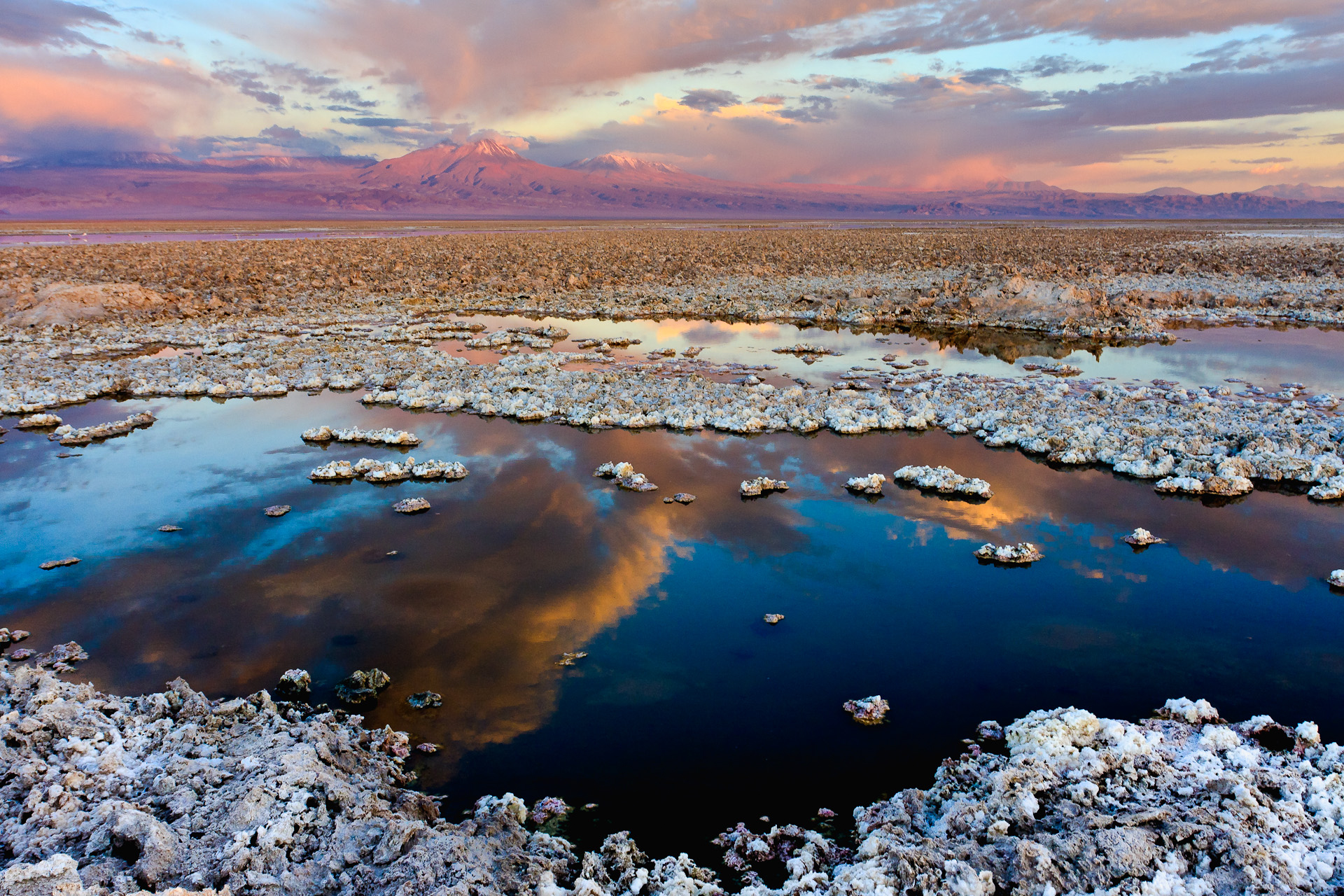
Salar de Atacama, Antofagasta, Chile
Lithium projects in this salt are run by SQM (Chile, China) and Albemarle (USA) making use mostly (but not only) of brine, while copper projects Minera Zaldívar (Antofagasta Minerals, Barrick) and Minera Escondida (BHP, Rio Tinto) have made use of the largest amounts of fresh water since their operations started. SQM and Escondida are formally accused of environmental damage and excessive water extraction in several Salt Flats such as Atacama, Punta Negra and Llamará.
Extraction of massive amounts of fresh water and brine (180 million liters/day aprox.) near protected wetlands as well as human settlements equally composed by atacameño indigenous people and non-indigenous communities who depend on small-scale agriculture and tourism.
Neither proper environmental assessment nor Indigenous/Public consultation has ever been carried out for lithium extraction, and precautionary principle has not been respected. It’s also important to note that the lithium giant SQM has been linked to Pinochet’s dictatorship since its privatization and in democracy has been involved in corruption, fraud and illegal funding of several political campaigns including former President Michelle Bachelet and current President Sebastián Piñera. The latter has been recently denounced in the International Criminal Court for crimes against humanity committed during the social outbreak that started in October 2019. Currently, the same company is deploying a greenwashing campaign that mixes the local catholic church, recently created foundations and a local newspaper.
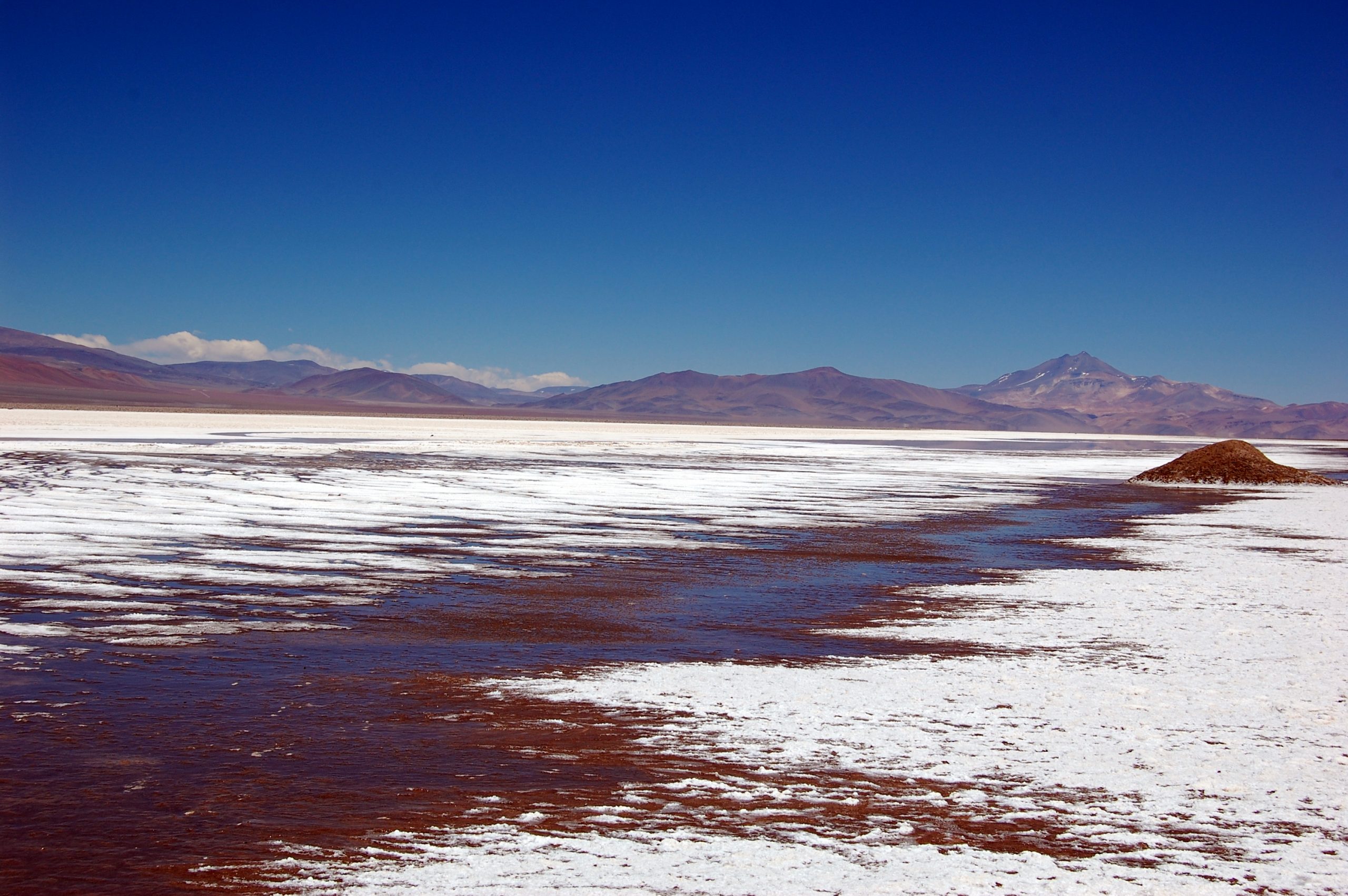
Salar de Maricunga, Atacama, Chile
Maricunga Salt Flat has suffered from the impacts of gold mining in the hands of Canadian Kinross, responsible for the desecation of about 70 hectares in the biological corridor pantanillo-ciénaga redonda, part of the Ramsar Site Complejo Lacustre Laguna del Negro Francisco y Laguna Santa Rosa, the government has approved in the middle of the pandemic lithium projects without proper environmental assessment nor FPIC to the indigeous colla communities affected by these activities. This is because the companies don’t acknowledge the social impacts of brine extraction in this Salt Flat as they do with the atacameño people in Atacama Salt Flat, and that’s acceptable for the environmental authorities.
Currently the most advanced projects are: Minera Salar Blanco S.A. owned by Australian Lithium Power International Limited (51%), Chilean Minera Salar Blanco S.p.A. (31%) and Canadian Bearing Lithium Corp. (18%); and Sales de Maricunga, controlled by Grupo Errázuriz (55%) and Taiwanese Simbalik Group (45%).
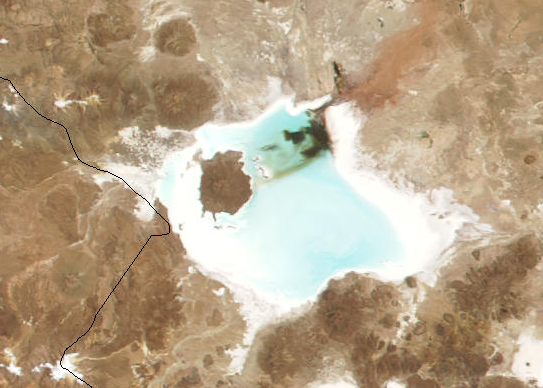
Salar de Coipasa, Oruro Dept., Bolivia
Located in Tarapacá region and crossed by the Bolivian border, Coipasa Salt Flat is under dispute since exploration works carried by the Canadian Lithium Chile were rejected by local Aymara communities because of the potential damage on wetlands that sustain both wildlife and cattle (alpacas). This conflict led the company to take legal actions against the Indigenous Community of Ancovinto. No Free, Prior and Informed Consultation have been applied and the local authorities denounce lack of support from the State of Chile and express their concern about deep divisions among communities as an effect of the agreements with Lithium Chile.
Other ongoing and potential conflicts over the exploitation of Salt Flats in the Southern Cone are in the Argentinean provinces of Catamarca, Salta and Jujuy, and in the Bolivian Department of Potosí.
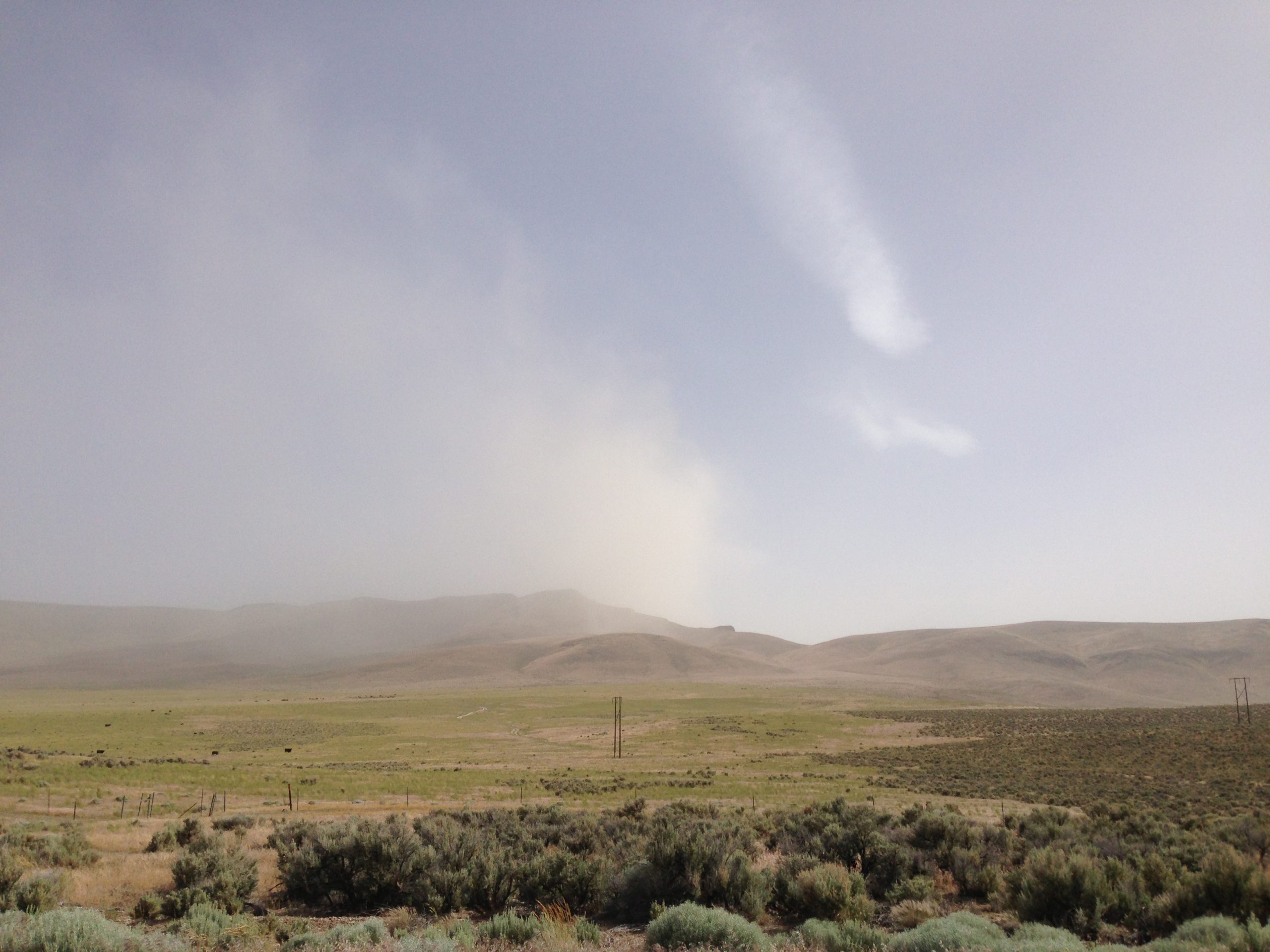
Thacker Pass, Nevada, USA
The proposed Thacker Pass lithium mine in Northern Nevada, United States of America, by the company Lithium Nevada/Lithium Americas is expected to destroy critical habitat, disrupt the nearby agricultural community’s ability to carry out their livelihoods, and destroy a significant cultural resources for the Fort McDermitt tribal community. The project was permitted without proper consultation or consent from the Fort McDermitt Paiute and Shoshone Tribe and many other tribes who have ties to Thacker Pass. It was also permitted despite clear and strong opposition from the local, rural, agricultural communities of Orovada and Kings River Valley. Groundwater contamination is anticipated to persist in excess of 300 years if not actively treated indefinitely.
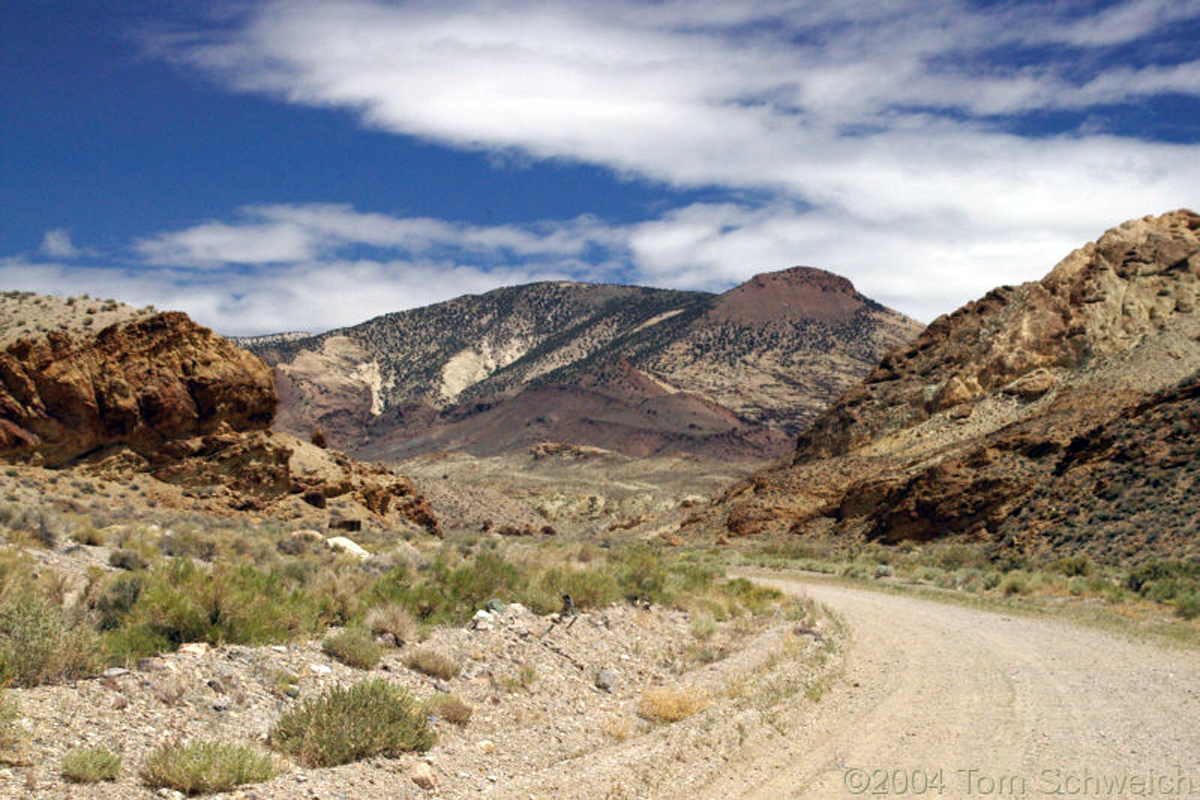
Rhyolite Ridge, Nevada, USA
The proposed Rhyolite Ridge lithium-boron mine project in Esmeralda County, Nevada, United States of America, by the company Australian-owned Ioneer would very likely cause an endemic species to go extinct. The flower, Tiehm’s Buckwheat, is only known to exist within the area that would be affected by the mine. Despite the mining company and regulatory agencies’s knowledge of this, they have persisted in their attempt to mine in that location, trying other tactics to get around responsibility towards the buckwheat species and state (and ultimately also global) biodiversity. They also actively worked to shield the public from knowing about the existence of the endemic buckwheat, with this information only coming into public awareness due to a single agency whistle-blower and a Freedom of Information Act request.
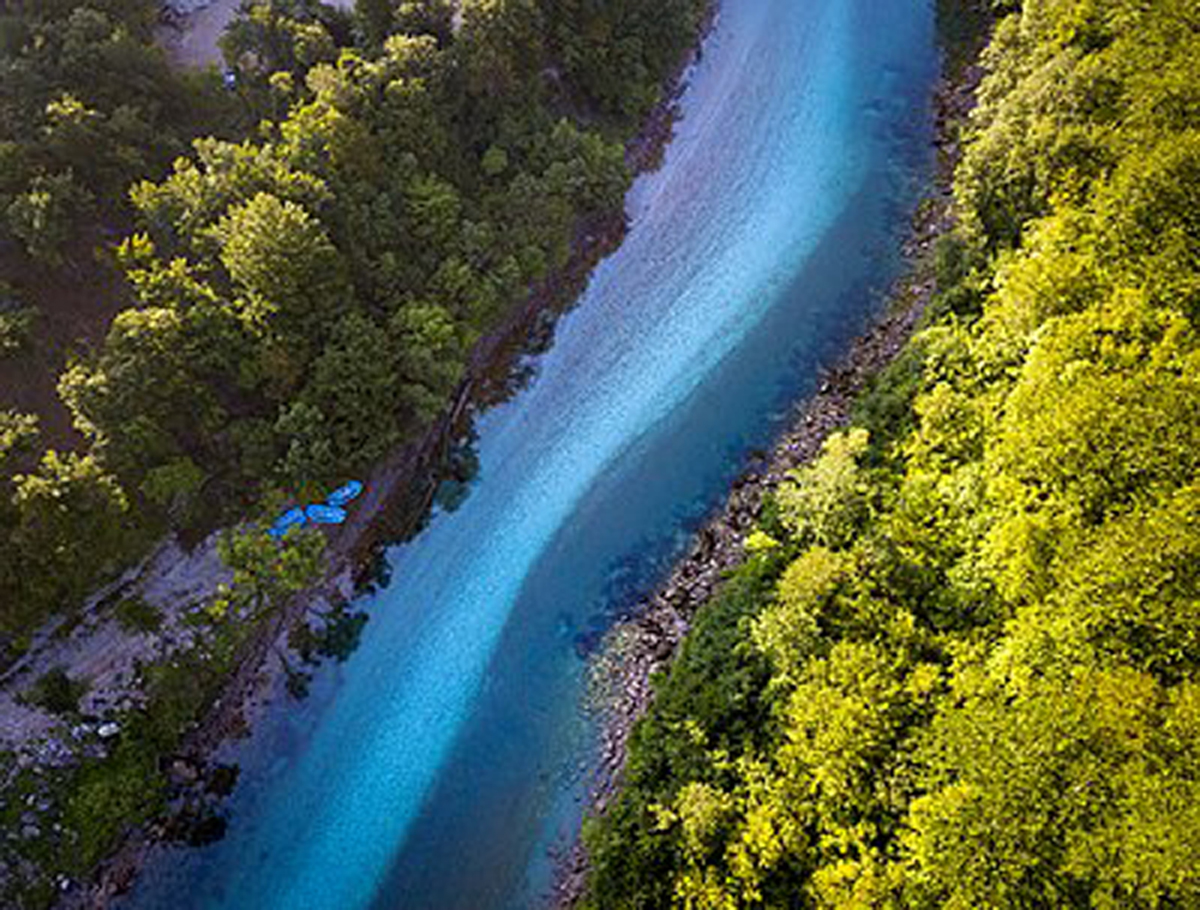
Jadar, Serbia
In 2004 Rio Tinto discovered lithium and borate deposits in the fertile valley of the Jadar river in west Serbia. Since then nothing much has been heard in public as the company quietly continued the research. At the end of 2019 the first drill holes for the research of the tailing waste area were made in Radjevina, neighboring region of the Jadar valley, which triggered concerns of the local community. At the same time, in December 2019 the public debate for the adoption of the spatial plan was held but the local community was not properly informed, so the Spatial plan was approved in February 2020. The Spatial plan is illegitimate in many ways: the majority of the local community was not informed of it, the project was not finalized at the moment (and still isn’t as for the May 2021) and the ore reserves weren’t declared.
Based on such illegitimate plan the company continues the research, together with government institutions renames the agricultural land into construction land without owners’ consent (who suffer damage due to it) and starts buying off properties on the location of the planned mine threatening owners that if they don’t comply to sell their properties, they will be eventually taken away in the expropriation process even though the public interest was never declared for this project.
As we can see, the basic human rights to be properly informed and make decisions concerning our future have not been respected. People’s lives, Rights of Nature and cultural heritage have been completely ignored and neglected for the sake of profit.
The local initiative that opposes the project demands for the abolition of the illegitimate Spatial plan and the permanent moratorium on lithium mines.
At the moment three different companies are researching lithium across the country as we face the mining boom.
We don’t want Nature and cultural heritage to be harmed and destroyed by harmful projects such as the Jadar project. Aware that green mining doesn’t exist and that lithium demand is everything but justified in the sense of climatic changes we are working on stopping this project hoping that this will help all other regions in Serbia to be saved from the harmful effects of unnecessary extractivism. Knowing that the only true change is the systematic change which rests on education, our task is not only to stop this one project but to advocate for the Rights of Nature, the Right to Say No and inform local communities of what extractivism really is.
In the century where Water and Food have strategic value we firmly say No to Mine, Yes to Life
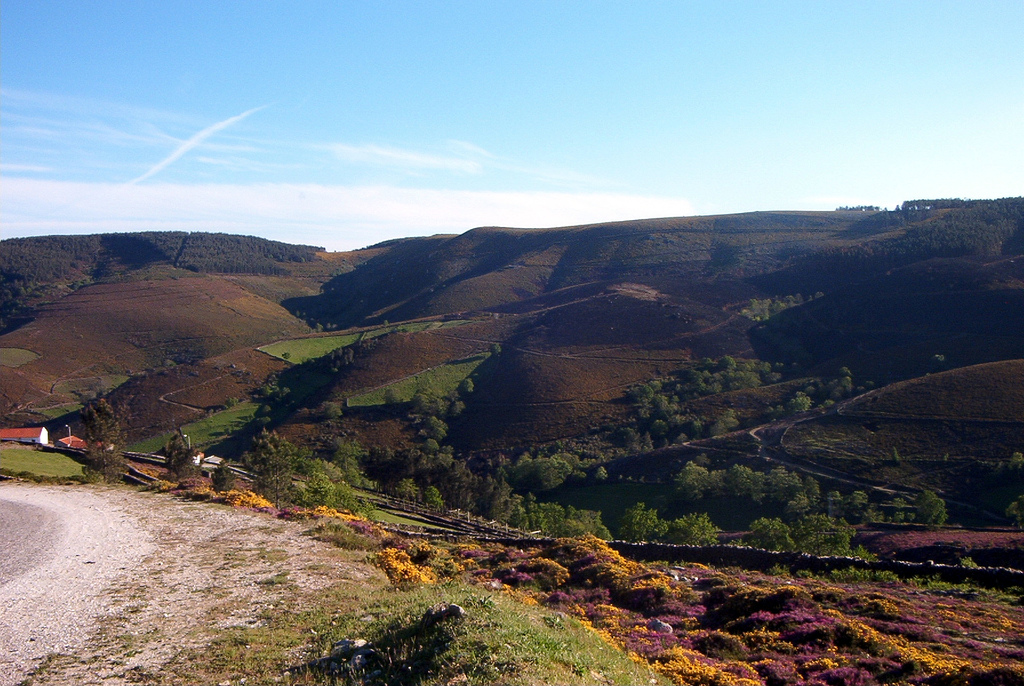
Mina do Barroso, Portugal
Spurred on by misleading claims about the Portuguese lithium reserves, the environmental and financial gains to be had, magnified by the ipromise of a value chain being built around it the Portuguese government bought into and heavily promoted mining, attracting the attention of mining companies all over the world. Misguided and misinformed politicians looking for quick political, economic and environmental fixes, coupled with a permissive licensing system resulted in a surge of exploration and mining licenses being issued to mining companies with varying degrees of experiences and capabilities. Furthermore, plans are afoot for an international lithium tender covering 8 Portuguese regions. Two of them are adjoining and centre around “Mina do Barroso” which together with another 8 licenses issued over the last few years are surrounded but excluded.
The proposed “Mina do Barroso” is located in the North of Portugal Barroso region which has been recognised by FAO as a Globally Important Agricultural Heritage Site. A number of lithium open pit mines are being planned in a large, green and water rich area, threatening the sustainable way of living of the communities that have lived there for over 8 centuries. Licenses were issued and altered without effective public consultation taking place resulting in an unopposed extensive and very aggressive prospection phase, feeding speculation and leading the AIM listed junior miner Savannah Resources, who owns the license, to make fantastic claims about the potential of the mine. Shocked, outraged and concerned by the plans and the lack of government oversight and responsibility for licensing and monitoring, the community is determined to stop the mines at all cost. Currently we are in the middle of a 30- day public consultation of an over 6,000 page Environmental Impact Assessment. Should the EIA be approved and the government plans go ahead, the whole GIAHS Barroso region is at risk, as are six other equally large and environmentally sensitive areas in the north and centre of the country.
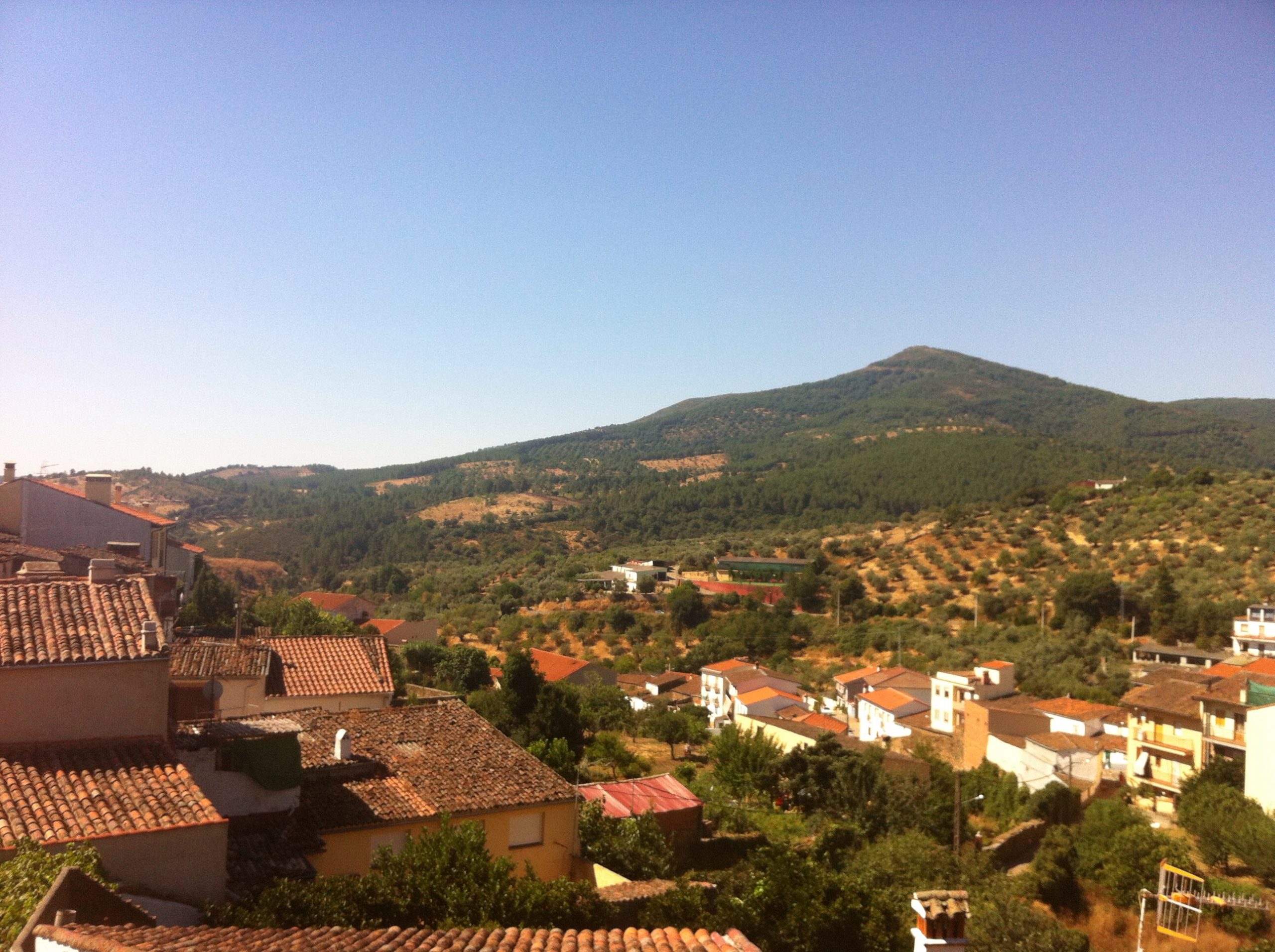
Cáceres, Spain
The mountain that borders the city of Cáceres “La Sierra de la Mosca” is an appalachian geological site, a mediterranean biodiversity shaw that keeps our city and our 95.000 people community healthy, posibiliting also many economic activities in respect with our environment. Our country is very dry, and this Mountain and the karstik sistem underfeet made possible the inhabitance here since our Neanderthal ancestors.
The actors of the raw material demands finds this mountain definitely rich in lithium and other raw materials, and that’s why many companies struggle around since 2017, doing their best to ignore our local culture, needs, and environmental relation:
- Valdeflores Project – Phase: extraction permits denied in 2021/4. Waiting for the restoration of the explored area. Company: australian Infinity Lithium Corporation and the spanish SACYR Company.
- Ampliación a Valdeflores Project – Phase: Exploring permits were accepted. Collective demands were lodged. Still waiting for responses. Company: australian Infinity Lithium Corporation holding a 75% interest in the Joint Venture Tecnología Extremeña Del Lito S.L. (‘TEL’).
There are many companies interested in the area of Valdeflores, that are waiting for Infinity Lithium to retreat:
- Romolus Project – Phase: exploration permits solicited. Company: german AMG Lithium GmbH.
- Ampliación a Romolus – Phase: exploration permits solicited. Company: german AMG Lithium GmbH.
- San José project – Phase: exploration permits solicited. Company: spanish Valoriza Minería S. L. (filial from spanish SACYR Company).
- Extremadura S. D. project – Phase: exploration permits solicited. Company: spanish Castilla Mining S. L.
Projects in other areas of our mountain La Sierra de la Mosca, less than 5kms. to the city Cáceres, with needed minerals to obtain lithium carbonate:
- Trasquilón Project – Phase: exploring permits been evaluated. Collective demands were lodge. Still waiting for responses. Standby. Company: spanish Grabat Energy.
Since 2017 when began the administrative procedure for Valdeflores project and Ampliación a Valdeflores project, the enterprise has said about this area to be the biggest lithium extractive potential in Europe, the third in the world, as they say about every new project they want to promote. For several times they announced many important amounts of investment, and even the posible construction of a lithium refining industry.
Valdeflores project didn’t reach the extractive phase, due to the four years long social opposition, which has been pressed as necessary from local to european politicians and institutions to oppose the project. Valdeflores project is unrealizable and illegal because of its proximity to our city (less than 2kms.), and the only option for the regional government has been to cancel the permits, causing the actual crash of the australian Infinity Lithium Corporation in the ASX.
They are still expected to restore the damages caused by their ilegal exploration works, with a court sentence beyond them. In response, the enterprise is going forward to demand the regional government.
For the Ampliación de Valdeflores project, they got the exploration permits with many restrictions in 2020/11. It seems not that interting for them in terms of lithium extractivism, because the open-pite area is in Valdeflores project, but they can look for carbonate and others.
For us, our land won’t be safe until all the demands are resolved, and our Mountain obtains an oficial protection that ensure us it will be free of mining threats for the future generations.
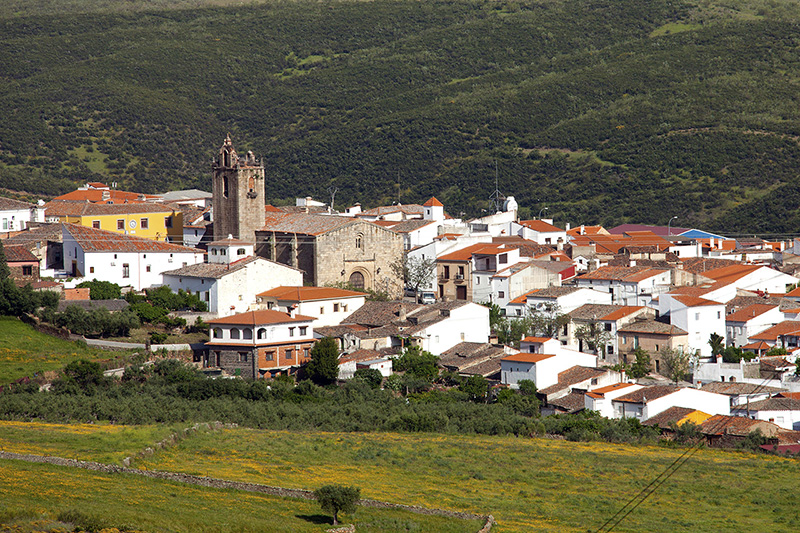
Cañaveral, Spain
– Las Navas project in Cañaveral – Phase: extractive permits accepted in 2020. Company: Lithium Iberia.
To show how the european politics are managing, see the acclamations by Phi4Tech: “Phi4tech, together with the regional President of Extremadura and the General Secretary for Industry in Spain, has formally announced in a press conference – on the 24th of March, 2021 – the first integrated battery project in Southern Europe, which includes in the same region, a lithium extraction and refining project – Lithium Iberia -, a nickel and cobalt extraction project – Aguasblancas -, a cathode manufacturing plant, and a 10 GWh cell manufacturing plant. The total investment for such project is 1000M€, out of which they have secured 600M€ already. Furthermore, this integrative project will offer 1300+ direct employment opportunities for the region.” (https://www.eba250.com/extremadura-hosts-southern-europes-first-battery-cell-factory-project/?cn-reloaded=1)
According to the European Raw Materials Politics, the regional government of Extremadura promotes the extractivism industry by exposing the exploitable lands and the “friendly administrations” in the public web http://sigeo.juntaex.es/portalsigeo/web/guest.
